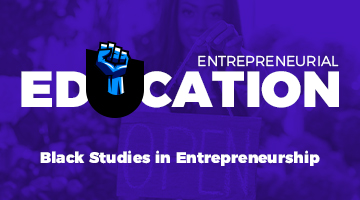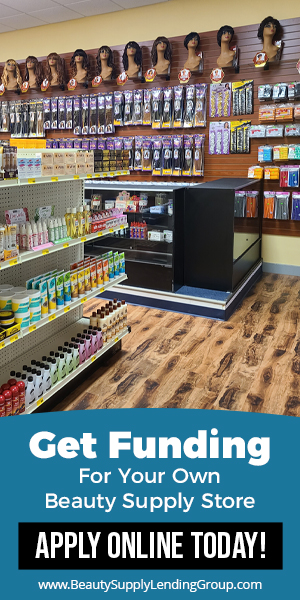These entrepreneurs created Black-owned company lists so patrons can spread the wealth that big business refuses to relinquish.
In the aftermath of the racial justice uprisings that swept the US in 2020, corporate America issued a swath of commitments aimed at addressing racial inequity. Big business promised to help workers of color rise through their internal ranks, and also committed to a loftier, if less specific, agenda: supporting Black businesses. The nation’s 50 biggest companies and institutions made pledges to the tune of $50bn. But according to an analysis by the consulting firm Creative Investment Research, only $250m of the promised funds had been spent by the next year.
Meanwhile, another kind of action – one that may seem like a drop in the bucket when compared with 11-figure promises – began to proliferate. The post-George Floyd days saw an explosion of Black business lists, directories curated to help individuals put their own dollars to use. From fashion publications and local business associations to food delivery and fitness apps, institutions began to publish hand-picked selections of Black-run companies to support.
We want to have a plethora of Black businesses you can find in every size and industry
Ron Busby Sr of US Black Chambers Inc
Ron Busby Sr of US Black Chambers Inc
A number of major corporations also put out lists. American Express was one of many brands to partner with Ron Busby Sr, president and CEO of the Washington DC-based nonprofit US Black Chambers Inc, to create a directory. Busby was already known for ByBlack, which functions as a shopping guide and a certification that guarantees businesses around the US are at least 51% Black-owned and managed. “The goal is for corporate America to go to one location,” Busby says. “We want to have a plethora of Black businesses you can find in every size and industry.”
While lists that exist online might not have the power to change an entrepreneur’s fortune overnight, they can move the needle, however slowly. When Nisha Blackwell’s handmade bow tie company Knotzlandappeared on the Pittsburgh tourism board’s list of Black-owned businesses, she wasn’t convinced it would have much effect on her bottom line. Over the last couple of years, though, “I was 100% surprised,” she says. She points out that while many roundups featuring Black-owned brands “are just for Black History Month or Juneteenth”, and have little in the way of stamina, “this listhas staying power.”
Jimmy McNeal, owner of action sports footwear brand Union Square Shoes, has yet to see his company appear on any Black-owned list. The Camden, New Jersey-based entrepreneur says he isn’t convinced that inclusion on a Black-owned list would make or break a sneaker brand, and he is focused on cultivating his label’s social media presence. “Maybe in five or seven years the lists will partner with mainstream TV and news sites and catapult to the next level,” he says. “Don’t get me wrong, the buying Black lists aren’t nothing, but in a few years they can be really big.”
Here is a list of Black-owned directories that are helping businesses stay top of mind and keep the lights on.
The Village Market
Our end goal is a mindset shift on how we think about the viability of Black businesses and where we’re deploying our dollars
Lakeysha Hallmon of the Village Market
Hallmon launched the Village List, a directory that includes service-based businesses like roofers and barbershops. Businesses on the list are required to have an active website and submit customer experience evaluations. Those who don’t meet the criteria can join Elevated Cities, which was created in partnership with Mastercard to provide business education and resources to independent companies.
“We want to make sure we’re betting on the absolute best businesses,” Hallmon says. “Our end goal is a mindset shift on how we think about the viability of Black businesses and where we’re deploying our dollars.”
Black Owned in LA
“How can I help?” is the question that Miranda Edwards, a Los Angeles resident, found herself asking during the racial uprisings of 2020. After some research, she discovered there wasn’t a directory of Black businesses for her city. So she set out to build Black Owned in LA, a website dedicated to promoting Black businesses.
The site has since expanded to include a map that allows users to locate businesses by neighborhood, and an events calendar for the Black arts and entertainment community. There are currently about 250 businesses in the directory, and each new listing is spotlighted in a weekly e-blast. Scheduled promotions are also posted on Black Owned in LA’s social media channels to give members a marketing push beyond the website.
Next, Edwards plans to establish a non-profit to host pop-ups. The goal is to provide temporary storefronts to Black-owned small businesses. “The unique thing about LA is there are a lot of vacant spaces,” Edwards says. “I know property owners willing to donate space if you have a plan.”
The Virginia Black Business Directory
Married entrepreneurs Ernisha and Tracey Hall developed the Virginia Black Business Directory in 2020, after starting their own website and graphic design company, Niray, in 2018. The Fredericksburg, Virginia-based couple found themselves being drawn into the Black-business ecosystem, fielding friends’ and colleagues’ requests for referrals for other Black-owned businesses. “The directory started out of a need in our community,” Tracey says. “Immediately, we had hundreds of businesses sign up.”
The directory started out of a need in our community. Immediately, we had hundreds of businesses sign up
Tracey Hall of the Virginia Black Business Directory
The non-profit directory comprises more than 1,250 listings, including 300 companies that are based in nearby Washington DC and Maryland, and also offers virtual and in-person business education courses. The volunteer-led staff at the Virginia Black Business Directory puts out a print version of the directory that can be purchased on its website and also produces the Black Business Expo, an annual conference that attracts 140 vendors and 1,500 attendees. Free Marie, a TV personality best known for her work on the show 106 & Park, hosted two events at the last gathering. More importantly, the Black Business Expo gives Black business owners the opportunity to network and build relationships.
The Black Book
The Salt Lake City-based Utah Jazz recently launched the Black Book, a directory of Black-owned businesses housed within the basketball team’s mobile app. The franchise partnered with the Utah Black chamber of commerce to boost the exposure of Black business owners in the state. Riley Demps, emerging technologies manager for the Jazz, says he developed the Black Book to offset a racial gap that affects the team’s community. While many of the Jazz’s star players are Black, the state’s population is only 1.5% Black. “I wanted to use my skills to go beyond performative initiatives,” says Demps.
Right now, there are 15 businesses with profiles and QR codes in the directory, with 10 more businesses due to be added soon. The first phase of the Black Book includes a loyalty program with which members can scan QR codes to receive free merchandise from the team store after they visit five of the suggested Black-owned businesses. “We have such a big platform, so it was a no-brainer,” says Demps.
I hope you appreciated this article. Before you move on, I was hoping you would consider taking the step of supporting the Guardian’s journalism.
From Elon Musk to Rupert Murdoch, a small number of billionaire owners have a powerful hold on so much of the information that reaches the public about what’s happening in the world. The Guardian is different. We have no billionaire owner or shareholders to consider. Our journalism is produced to serve the public interest – not profit motives.
And we avoid the trap that befalls much US media – the tendency, born of a desire to please all sides, to engage in false equivalence in the name of neutrality. While fairness guides everything we do, we know there is a right and a wrong position in the fight against racism and for reproductive justice. When we report on issues like the climate crisis, we’re not afraid to name who is responsible. And as a global news organization, we’re able to provide a fresh, outsider perspective on US politics – one so often missing from the insular American media bubble.
Around the world, readers can access the Guardian’s paywall-free journalism because of our unique reader-supported model. That’s because of people like you. Our readers keep us independent, beholden to no outside influence and accessible to everyone – whether they can afford to pay for news, or not.





